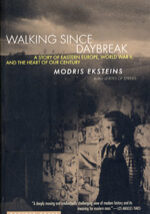In 701 B.C. the Assyrian empire was in its ascendancy. It had already vanquished the kingdom of Israel to the north including the capital at Samaria. It then prepared an assault on Judah and its capital at Jerusalem.
But in one of those significant events that changes the course of world history, Assyria was repelled. Jerusalem was saved until 586 B.C. when the Babylonians sacked the city, forcing its leadership class into exile.
Henry Aubin, in a major feat of scholarship, determines that Jerusalem was aided by a Kushite army from Africa which had marched northeast from the Nile valley. While the Bible attributes the Assyrian retreat to an angel and secular commentators cite pestilence, Aubin, in a meticulously documented work, demonstrates that an alliance with the African nation of Kush bolstered Jerusalem’s defences.
Kush, also known as Nubia, was located in what is now southern Egypt and northern Sudan. A monarchy that existed for more than 1000 years, from 900 B.C. to A.D. 350, Kushites held sway over Egypt from 712 B.C. to about 660 B.C. Of Egypt’s 31 dynasties, this, the 25th Dynasty, is the only one that all scholars agree, was black.
The commander of the Kushite expeditionary force was Taharqa (or as the Bible calls him Tirhakah). This Kushite prince, who had his own interests in halting Assyrian expansion, likely caught the aggressors by surprise as they prepared their siege of Jerusalem.
Aubin offers a thrilling military history and a stirring political analysis of the ancient world. He also sees the event as influential over the centuries.
The Kushite rescue of the Hebrew kingdom of Judah enabled the fragile, war-ravaged state to endure, to nurse itself back to economic and demographic health, and allowed the Hebrew religion, Yahwism, to evolve within the next several centuries into Judaism. Thus emerged the monotheistic trunk supporting Christianity and Islam.

“A deeply moving and intellectually challenging view of modern history.â€
Los Angeles Times
“…a beautiful meditation, written with both intellectual and moral urgency.â€
Publishers Weekly
“…an important reassessment of WWII and it’s outcome… provocative and ambitious.â€
Kirkus Reviews
Winner Pearson Literary Prize
Standaart Nthlds 2007
Houghton Mifflin 1999
Macmillan UK 2000 OP
Key Porter Canada 1999
Atena Latvia 2002
Walking Since Daybreak
In his journey to 1945 and the firestorm in Berlin, Eksteins weaves the story of his family in Latvia into the major events of the era, merging the subjectivity of the modern style with the objectivity of the scholar.
Empire, war, communism, fascism, the Holocaust, genocide, the huge tide of European refuges, New World immigration, freedom…These are the markers of our turbulent age.
Born in Latvia, Eksteins arrived as a child in 1950 among the displaced in Canada. He surveys the wreckage from two angles: by looking back from 1989 and the collapse of the Berlin Wall and, at the same time, moving forward from the perspective of the 19th century borderlands between Russia and Germany.
It is an astute and thrilling panorama from the imperial age of coherence to our current confusions and fragmented logic.